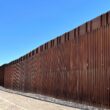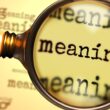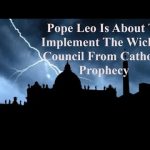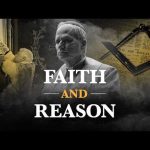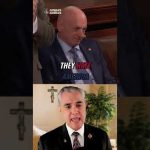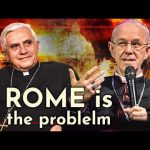Father Isaac Thomas Hecker founded the Paulist Fathers in New York City in 1858. / Credit: Paulist Fathers
Baltimore, Md., Nov 15, 2023 / 14:15 pm (CNA).
The U.S. bishops voted Tuesday to advance the cause of beatification and canonization of Servant of God Isaac Thomas Hecker, a 19th-century American priest who founded the Missionary Society of St. Paul the Apostle, today known as the Paulist Fathers.
Hecker’s cause for canonization was formally opened in 2008, at which time he received the title “Servant of God.”
Paulist Father Ron Franco, who is the postulator of Hecker’s cause, told CNA Tuesday that the next step in the process is to publicize the cause for canonization in the Archdiocese of New York, where the Paulists are headquartered.
Franco said that “the long-term task of the study of Isaac Hecker’s writings by a historical commission has already begun.”
Cardinal Timothy Dolan of the Archdiocese of New York raised the question of furthering the cause of canonization at the local level to his brother bishops at the U.S. bishops’ annual fall assembly in Baltimore on Tuesday.
After a vote, 230 bishops voted yes, seven voted no, and two abstained.
Hecker’s life was a “classic American story,” Dolan said, adding that Hecker, the son of German immigrants, “didn’t have it easy.”
Dolan said that Hecker set out to “win the world for Christ” and “worked tirelessly to proclaim the word of God.”
“His faith ought to inspire us,” he said. “I ask for your endorsement that the Church may soon raise to the altar Father Isaac Thomas Hecker.”
Spiritual struggle
Servant of God Isaac Thomas Hecker was born in New York City to German Protestant immigrants on Dec. 18, 1819.
His father, John Jonas Hecker, was a metalworker and his mother, Caroline Hecker, raised him and his four siblings in the Methodist denomination.
Working as a delivery boy for his brothers’ baking company, he became exposed to the struggles of many New Yorkers striving to survive in the crime-ridden, disease-filled streets that left many children orphaned and in danger.
Hecker felt God was calling him to stand up for exploited immigrants in the city, so he and his brothers joined a faction of New York’s Democratic Party known as the Loco-Focos in order to try to achieve political change.
That faction ultimately failed to garner support from the city’s Democratic Party, and Hecker felt hopeless, wondering what his calling from God was.
Beginning to grow in a relationship with God in his 20s, Hecker had several mystical experiences in his dreams. In 1843 he wrote about a vision he had 10 months prior, according to his biography on the Paulist Fathers’ website.
That vision consisted of “a beautiful angelic, pure being and myself standing alongside of her, feeling a most heavenly pure joy,” Hecker wrote.
“And it was if our bodies were luminous and they gave forth a moon-like light, which I felt sprang from the joy that we experienced,” he wrote.
As he continued to search for where God was calling him, Hecker went to Boston to receive the guidance of an Anglican philosopher, Orestes Brownson, who encouraged the young man to join a suburban Boston community of scholars, writers, artists, farmers, tradesmen, and preachers with the purpose of searching for truth.
Not feeling satisfied, Hecker joined another scholarly community six months later near Harvard, Massachusetts, in July 1843. Still experiencing an internal spiritual struggle, he returned to his family in New York City one month later.
Returning to work with his brothers, he refused to join politics after his experience in the Loco-Focos movement. Hecker also felt that politics and his work were a distraction to his meditation and prayer.
Eventually, Hecker decided he wanted to become a Christian minister but was conflicted on which denomination to join. He had narrowed down the choices to either the Anglican Church or the Roman Catholic Church.
Hecker consulted Anglican Rev. Samuel Seabury, rector of the Church of the Annunciation in New York City, and Catholic Archbishop John Hughes of New York.
After his meeting with Hughes, Hecker wrote in his diary that “the Roman Catholic Church is not national with us, hence it does not meet our wants, nor does it fully understand and sympathize with the experiences and disposition of our people. It is principally made up of adopted and foreign individuals.”
Hecker reconsidered converting to Catholicism in 1844 when Brownson told him of his decision to join the Catholic Church.
Hecker consulted the Diocese of Boston’s then co-adjutor Bishop John Bernard Fitzpatrick and was moved by the meeting.
He was baptized on Aug. 2, 1844, by New York co-adjutor Archbishop John McCloskey, who directed him to grow in his spiritual life through daily Mass and prayer.
A zealous preacher
Struggling to determine in which order to become a priest, Hecker eventually chose the Redemptorists, or the Congregation of the Most Holy Redeemer. He sailed for Belgium for his formation in 1845.
Hecker was ordained a priest on Oct. 23, 1849, and began his priestly ministry in Liverpool, England. In 1851, he returned to New York City to serve in a newly established province of the order.
Hecker and three of his brother priests began offering parish missions to English-speaking parishes all across the United States. Hecker was especially zealous and would visit the homes of local Catholics if the turnout was poor.
Throughout his ministry, he became convinced that non-Catholics in America would convert to Catholicism if Catholics dove deeper into the spiritual life. Cultivating a deeper spiritual life in Catholics became his mission.
But Hecker and his team also gave talks to groups of Protestants, which concluded in the conversion of some who attended.
In 1855, Hecker published “Questions of the Soul,” a book meant to attract Protestants to the faith that was based on his spiritual journey.
A new congregation
As the Redemptorists were founded in Europe, Hecker and his American-born brother priests wished to establish an English-speaking Redemptorist headquarters, one of the reasons being that it would serve as a rebuttal to certain American anti-Catholic sentiments against the non-native order.
The provincial of the order denied permission for Hecker to visit Rome and present his case, but Hecker argued that the order’s constitution permitted him, even if permission was denied by his superior.
When Hecker traveled to Rome, Redemptorist Superior General Father Nicholas Mauron accused him of violating his vows of obedience and poverty through his traveling without permission. The general and his board of consultors then dismissed him from the congregation.
Hecker stayed in Rome to fight the decision and eventually was granted an interview with Pope Pius IX, who dispensed Hecker and the American Redemptorists of their vows. The pope then approved Hecker’s plans for a congregation of priests dedicated to evangelization in America.
Hecker returned to the U.S. in 1858 and the new congregation, the Missionary Priests of St. Paul the Apostle, was accepted into the Archdiocese of New York. The group today is known as the Paulist Fathers.
Hecker’s new congregation engaged in parish missions and evangelization to non-Catholics. The group moved across the country, traveling thousands of miles while delivering lectures.
Hecker launched a magazine in 1865 called “The Catholic World” and founded the Catholic Publication Society a year later. Additionally, he founded a magazine for young boys and girls called “The Young Catholic” in 1870.
In 1869, Hecker traveled back to Rome and attended the First Vatican Council, assisting Bishop James Gibbons of North Carolina as a theologian.
When Hecker returned home in 1870, he was diagnosed with chronic leukemia. The disease severely limited his work, and he went to Europe to seek a cure. Returning to the United States in 1875, he continued to work to spread the Gospel as much as he could.
He eventually died on Dec. 22, 1888, at the Paulist House in Manhattan.


